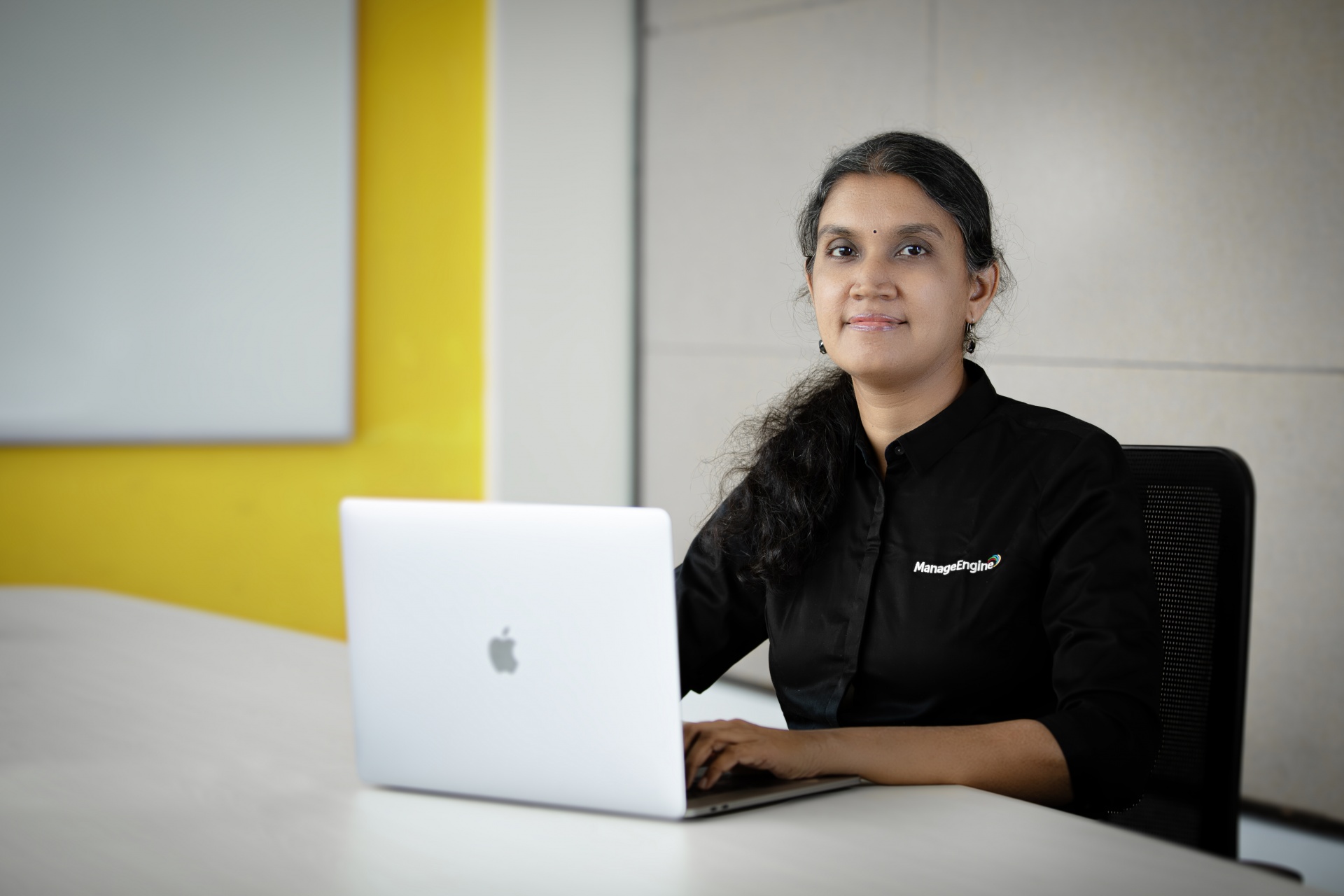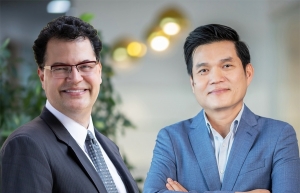Empowering women in tech: shattering cybersecurity ceilings in Vietnam
 |
| Deepa Kuppuswamy, director of security at ManageEngine |
What inspired you to pursue a career in technology and cybersecurity, and how has your journey been so far? What's the most unexpected or unusual aspect of your job that people might not know about?
I was attracted to technology during my college years, when the software industry was finding its footing in India. At the time, I was interested in computer science, and I wanted to gain some experience in the software field, which was what led me to join Zoho Corp after a successful college campus interview. I never expected that not only would I stay at the same company for the next 22 years, but also transition from product engineering to information security a decade ago.
Overall, I would say that my time in Zoho was, and still is, an incredibly interesting journey, as I've had the opportunity to spearhead engineering for various ManageEngine products. In my current role, I lead the team responsible for creating and managing technical security and data protection measures within the organisation.
However, one of the interesting things about working in the information security domain is that I needed to be a lifelong learner. This includes staying up-to-date on emerging threats and the latest security innovations. But, to me, that is what makes information security an interesting and fulfilling career, as I get to learn and try out new things.
As a leader in the tech industry, what do you think are the most exciting advancements or trends in cybersecurity that we should be aware of?
One cybersecurity technology that I am most excited for is Zero Trust Network Access (ZTNA). This approach requires all users and devices to verify their identities before they are allowed to use corporate assets. These capabilities are in line with ManageEngine's commitment to deliver strong and adaptive safeguards that prevent unauthorised parties from accessing mission-critical data and applications.
As for trends, I find organisations' increasing emphasis on security awareness training to be a very positive development. This is because I believe that employees can and should act as the first line of defence against cyber threats. As employees become familiar with cyberattackers' tactics as well as the solutions that can best counter them, they will be able to reduce the number of security incidents brought on by human error, including data theft.
What advice would you give to young women aspiring to enter the tech or cybersecurity field in Vietnam?
Firstly, I would urge women to embrace a continuous learning mindset. When I entered the information security field a decade ago, it was a brand-new experience for me. The job requires me to understand how emerging threats work and align myself with business objectives so that I can provide the necessary protections without hampering organizational processes and workflows.
Furthermore, learning to think like an attacker is an essential skill for anyone who wants to enter information security, so we can't rest on our laurels and must constantly look for vulnerabilities in existing safeguards. Besides that, effectively communicating the nuances of cybersecurity is critical for ensuring people across the organisation are educated on their role in data protection and know what to do in the event of an attack.
Knowledge diversification is similarly a crucial factor, and understanding the various sub-areas of cybersecurity will position women to coordinate effective measures to thwart attackers.
Finally, I advise women to be open-minded to transitions and training opportunities. Not only will this enable them to achieve greater success in the cybersecurity field, but it can also open new career pathways that allow them to grow their portfolio.
In your experience, how has the tech industry in Vietnam changed in terms of gender diversity and inclusion over the years?
From my observations, the tech industry in Vietnam has yielded positive developments in gender inclusion. However, there is still room for improvement, particularly in providing better social and economic outcomes for all, including women, as well as cultivating diversity, equity, and inclusion in the workplace.
One of the key focus areas that needs to be addressed is the digital gender gap that still exists in the country. For example, according to a UN report, women made up about 37 per cent of science, technology, engineering, and mathematics (STEM) graduates in the tertiary education sector throughout 2023. Having witnessed first-hand women demonstrating their talents, there is no reason why more Vietnamese women can't break the tech glass ceiling.
What steps can organisations take to create a more inclusive and supportive environment for women in tech and cybersecurity?
Encouraging inclusivity in the workplace requires businesses to rethink hiring practices. For instance, organisations can set aspirational goals that outline ideal target rates for women employees in both technical and non-technical jobs. Besides that, organisations should focus on the candidate's skills rather than their location, ensuring that their individual talents are recognised and valued. By adopting these, companies can create a more balanced representation in the workforce.
As for fostering a supportive work environment, encouraging open communication and 360-degree feedback is crucial to aligning team members with goals and policies. In particular, organisations should convey technical security and data protection measures so that employees know how they can keep themselves safe from threats. These measures can also be supplemented by ongoing training and skill development courses so that employees can augment cybersecurity professionals' efforts to protect crucial assets.
 | Navigating a stricter data privacy legal landscape As the first comprehensive personal data protection legal framework in Vietnam is about to become effective, businesses are scrambling to comply. Michael Beckman, partner at EY Law Vietnam, and Robert Tran, partner at EY Vietnam Cybersecurity Services, discover the impact of the regulations on the financial sector and what to do to build a culture of personal data privacy. |
What the stars mean:
★ Poor ★ ★ Promising ★★★ Good ★★★★ Very good ★★★★★ Exceptional
Related Contents
Latest News
More News
- Mondelez Kinh Do renews the spirit of togetherness (February 06, 2026 | 09:35)
- Seafood exports rise in January (February 05, 2026 | 17:31)
- Accelerating digitalisation of air traffic services in Vietnam (February 05, 2026 | 17:30)
- Ekko raises $4.2 million to improve employee retention and financial wellbeing (February 05, 2026 | 17:28)
- Dassault Systèmes and Nvidia to build platform powering virtual twins (February 04, 2026 | 08:00)
- The PAN Group acquires $56 million in after-tax profit in 2025 (February 03, 2026 | 13:06)
- Young entrepreneurs community to accelerate admin reform (February 03, 2026 | 13:04)
- Spring Fair 2026 launches national fair series (January 30, 2026 | 16:17)
- SnP celebrates 10th anniversary with new brand identity (January 30, 2026 | 14:41)
- Sci-tech sector sees January revenue growth of 23 per cent (January 30, 2026 | 11:20)

 Tag:
Tag:




















 Mobile Version
Mobile Version